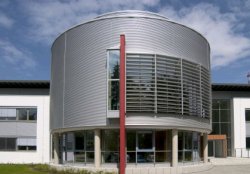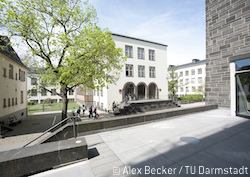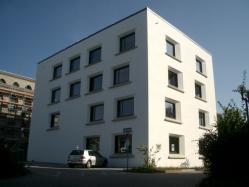Organizations
Scalasca is jointly developed by the following organizations.
Forschungszentrum Jülich

Forschungszentrum Jülich pursues cutting-edge interdisciplinary research on solving the grand challenges facing society in the fields of health, energy and the environment, and also information technologies. In combination with its two key competencies – physics and supercomputing – work at Jülich focuses on both long-term, fundamental and multidisciplinary contributions to science and technology as well as on specific technological applications. With a staff of about 4400, Jülich – a member of the Helmholtz Association – is one of the largest research centers in Europe. Jülich Supercomputing Centre, where the Scalasca project was started, is an institute on the Jülich campus that provides supercomputer resources, IT tools, methods and knowhow for the research center as a whole as well as for national and European users. It operates the central supercomputers and server systems as well as the campus-wide computer networks and communication systems. In support of its mission, Jülich Supercomputing Centre also conducts research in computational science, computer science, and mathematics.
Technische Universität Darmstadt

Since its foundation in 1877, Technische Universität Darmstadt (TU Darmstadt) has played its part in addressing the urgent issues of the future with pioneering achievements and outstanding research and teaching. TU Darmstadt focuses on selected, highly relevant problem areas. Technology is at the heart of all the disciplines at TU Darmstadt. It is the leading research-oriented university in the Rhein-Main area of Germany with a strong focus on engineering and computer science. TU Darmstadt can look back on decades of successful tradition and innovation in the field of computer science. As early as 1957, the first programming lectures were held in Darmstadt, thus building the basis for one of the most important computer science centers in Germany. In 1972 the Department of Computer Science was founded, one of the first in Germany. The department is constantly ranked among the top-rated institutions at all national relevant rankings for many years now. In 2015, the department established the Laboratory for Parallel Programming. Its mission is to provide solutions that support simulation scientists in exploiting massive parallelism on modern architectures. To achieve this goal, the laboratory develops leading-edge programming tools and infrastructure for parallel computing.
German Research School for Simulation Sciences

The German Research School for Simulation Sciences is a joint venture of Forschungszentrum Jülich and RWTH Aachen University, combining the specific strengths of the two founders in the fields of science, engineering, and high-performance computing in a unique synergistic way. Located in dedicated modern facilities on the Aachen and Jülich campuses and equipped with privileged access to world-class computing and visualization resources, the school is committed to research and education in the applications and methods of HPC-based computer simulation in science and engineering. As an essential element of its mission, the school provides a Master's and a doctoral program designed to train the next generation of computational scientists and engineers. Affiliated with the computer science department of RWTH Aachen University, the Laboratory for Parallel Programming in Aachen, one of the school's four research divisions and partner in the Scalasca project since 2009, specializes in tools that support simulation scientists in exploiting parallelism at massive scales.


